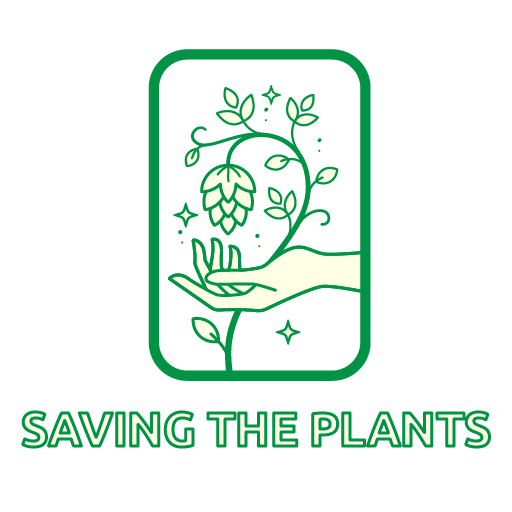Hawaii is poised to become the first state in the US with a legal hemp industry. The new rules are expected to bring more jobs, revenue, and opportunity for farmers.
Hemp is a type of cannabis plant that has been used for centuries. Now, Hawaii’s new hemp regulations could deter cultivators from growing the crop. Read more in detail here: is hemp and cbd the same.
Hawaii has issued new rules for the production of hemp, a kind of cannabis plant with a THC content of less than 0.3 percent. The world of hemp—and the world of cannabis in general—is characterized by frequent and unpredictable changes. Despite the fact that the federal government has acknowledged hemp as a viable crop and made steps to legalize it, each state has enacted its own rules and regulations regarding the plant.
Hemp, once dubbed “the new billion-dollar crop” by Popular Mechanics magazine in the 1930s, has gone through a number of legal changes in different states throughout the years. Industrial hemp legislation has been a rollercoaster of a ride in Hawaii, where cultivation accounts for almost 30% of the land.
Hawaii’s Hemp Regulations in the Past
Hemp was outlawed throughout the nation, including Hawaii, when cannabis was made illegal in 1937. With the passage of the Farm Bill in 2014, which authorized hemp research projects, things started to shift. Hawaii Governor David Ige signed an act creating Hawaii’s Industrial Hemp Pilot Program in July 2016, allowing hemp growing for agricultural and academic purposes.
Approximately 57 licensed growers participated in the trial program, which ran through 2020. Although program administrators emphasized that this was a regular part of the study process, the state had to burn 18 hemp harvests in 2019 because they tested too high for THC. Crop genetics may differ due to Hawaii’s distinct environment when compared to other states.
New agricultural restrictions were enacted by Hawaii legislators in February 2020. Following the pilot program’s success, they permitted hemp to be grown as an agricultural crop and controlled the manufacture and sale of hemp-derived goods. They also put in place compliance procedures that required testing and labeling in order to provide consumers more information about the goods they were buying.
Hawaii’s Newest Hemp Regulations
Hawaii authorities adopted new regulations for hemp cultivation and hemp products in the state in mid-August. According to a statement released by the Hawaii Department of Health’s Food and Drug Branch on August 9,
“These regulations represent the next step in regulating Hawaii’s burgeoning hemp sector in a manner that protects consumers by mandating lab testing for contaminants and labeled cannabinoid content while providing local hemp farmers with a legal route to bring edible hemp products to market.”
Vape liquids containing cannabinoids produced from industrial hemp plants are now legally prohibited under the new laws and regulations. CBD gummies and CBD-infused drinks were also prohibited under these regulations. This comes after the state authorized the selling of cannabinoid-infused edibles at state-licensed medical cannabis shops less than a year ago.
One of the most surprising aspects of these laws is that they prohibit the sale of smokeable hemp products, commonly known as hemp flower. Hemp-derived cannabinoid products, such as CBD, may only be sold in the form of a tablet, capsule, soft gel, gelcap, powder, or tincture under the new regulations. Topical products that are applied to the skin and hair are also permitted.
In Hawaii, Hemp’s Future
Hawaii’s environmental circumstances, along with stringent hemp laws, may spell catastrophe for the state’s hemp industry. Hawaii already has a disadvantage in hemp production due to its short days, which may cause hemp plants to bloom much sooner than intended, as well as strong winds and humidity, which can wreak havoc on any crop. Even if farmers figure out how to deal with these problems, the small market for their goods may discourage them.
Although Hawaii’s hemp pilot program has concluded, producers in the state may still apply to the US Department of Agriculture for a hemp production license. They must satisfy a set of criteria in order to be considered. The USDA Domestic Hemp Production Program has specified these criteria as follows:
- For up to 10 years from their date of conviction, anybody convicted of a crime connected to a restricted drug, whether under state or federal law, is barred from obtaining a license to grow hemp or from being a significant participant in any company that has been licensed to produce hemp.
- Only the state agricultural district is allowed to cultivate hemp.
- Pimp is not allowed to be cultivated within 500 feet of any playground, daycare institution, or school.
- Hemp may not be cultivated within 500 feet of any existing residential home, apartment, dwelling unit, or residential building that the license holder does not own or manage.
- Hemp cannot be cultivated inside any home, dwelling unit, or residential structure, including apartments, duplexes, and condominiums.
The state of Hawaii Department of Agriculture’s Hemp Production resource website has a complete list of rules and information on hemp growing in Hawaii.
Ashley Priest is a patient, mother, entrepreneur, and activist who is working to abolish prohibition across the world for a brighter future for everyone. Ashley is passionate about spreading knowledge about the goddess plant known as cannabis. She thinks that a single seed can tilt the scales, and that by working together to remove the stigma around cannabis, we can help it reach its full potential worldwide.
Related Tags
- hemp inc
- hemp stock


